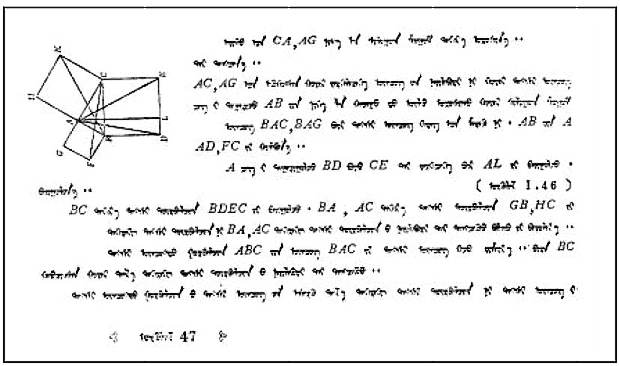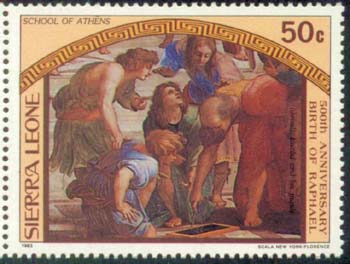|
|
I never really sat down, like Euclid did for the geometers of Greece, and made sure that you could get it all from a single simple set of axioms. As a result, the work was criticized, I don't know whether favorably or unfavorably, and the "method" was called the "intuitive method". Richard P. Feynman – Nobel Lecture, December 11, 1965
Euclid's book seems to be a series of axioms, postulates, proofs very strict arranged without any examples and this some have considered was the reason that generations of students had problems in learning mathematics and geometry. Παρ' Εὐκλείδη τις ἀρξάμενος γεωμετρεῖν, ὡς τὸ πρῶτον θεώρημα ἔμαθεν, ἤρετο τὸν Εὐκλείδη: "Τί δέ μοι πλέον ἔσται ταῦτα μαθόντι;" καὶ ὁ Εὐκλείδης τὸν παῖδα καλέσας "Δός", ἔφη, "αὐτῷ τριώβολον, ἐπειδὴ δεῖ αὐτῷ ἐξ ὧν μανθάνει κερδαίνειν It is difficult to see how important this book is and even Euclid was asked by a student if he will have some benefit from learning geometry. Euclid is said to have given the student some money so that at least the student could not say that he has no benefit. Actually very little is known about Euclid and the original version of the Elements. We do not have an original copy and there is an entire science developed of what the original text is and what has been added later. We have only as the oldest known copy a pergament script in the Bodleian Library in Oxford around 888 AD, i.e. 1200 years after Euclid has written the Elements. It is interesting that many experts of the history of mathematics consider Euclid not a very good geometer, i.e. that he mainly provided a compilation of a part of the accumulated geometrical knowledge. Euclid's Elements appears to be a compendium of Greek mathematics until his times but this is not so. For example the conical sections are not discussed. The first entry of “The BOOK” is Euclid's proof that the number of prime numbers is not finite. Proof: Euclid considers for a set p1,p2,...,pn of prime numbers the number n = p1*p2*...*pn+1 This number has a prime divisor p. But p cannot be any of the p1,p2,...,pn otherwise it would be a divisor of n and and also of p1*p2*...*pn which is impossible. Therefore the set of prime numbers is not finite.
The parallel postulate. Euclid says that two lines are parallel if they never met, even if extended indefinitely in both directions which defines the fifth postulate of Euclid's geometry. While this seems reasonably true Euclid defines this as postulate and not a theorem. Proclus (410-485) believes that this should be a theorem as later Playfair in 1795 who introduces the Playfair axiom: Two lines that intersect one another cannot be both parallel to the same line. Mathematicians tried for 2000 year to modify Euclid's geometry so that the postulate could be proved but they did not succeed. Out of nothing I have created a strange new universe.
Gauss, Bolyai, and Anti-Euclidean Geometry ( of Euclid in Greek (from Perseus.. but I would say not easy to use)
| ||||||||||||


